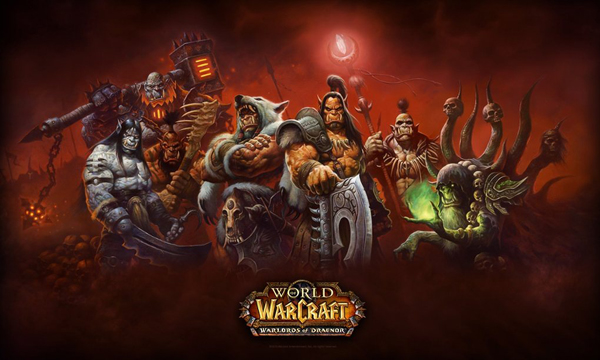Dr. Snodgrass has been researching the connection between video games and stress relief.

As appearing in The Guardian | November 14, 2014
Don’t let me buy Warlords of Draenor, please
by Alex Hern
Every two years or so, I’m put to the test. Unbidden memories start to surface, of talent trees, epic mounts, and raiding. Hotkey combinations still feel close to my fingertips, and even now I can tell you why I prefer a holy warrior to a shadow priest.
My name’s Alex, and I’m a World of Warcraft addict, six years clean. And now is the hardest time of the year.
Once the biggest massively multiplayer online game in the world, before the definition became so blurred as to render it moot, WoW is still a huge deal. Almost 7.5 million people subscribe to the game, paying up to £9 a month for the privilege, on top of one-off fees for the base game and the regular expansion packs.
As WoW lumbers into its 10th year, that number has been declining for some time, in the face of competition from free-to-play games and fresh-faced rivals. But the release on Wednesday of Warlords of Draenor, the fifth expansion pack in the series, has boosted the number, with 600,000 players jumping on board in preparation of the new pack.
The vast majority of them won’t be new players trying out a decade-old game which is, by any definition, past its prime; they will be former players relapsing, tempted by the promise of new worlds, new dungeons, and new levels.
Because once WoW gets its hooks into you, it never quite lets go. Fundamental to the game is a sort of weaponised behavioural psychology, which uses insights gained from BF Skinner’s famous experiments on the mechanisms of reward cycles to create compulsive attitudes in players.
Nearly every reward in the game is randomised in some way, from the quest items that drop as you commit genocide on harmless murlocs to please townspeople to the legendary weapons that you get from killing the game’s final bosses as part of a 40-person raid. And doling out rewards on a seemingly random basis is key to keeping people engaged.
Give too many things away, and the game becomes easy, predictable and boring, but add some unpredictability and the player keeps coming back for more. To a certain extent, that’s just game design in practice: but Warcraft ratchets it up to terrifying levels. In its own way, every single thing is built around encouraging you to continue playing, from the social mechanics at work in the large scale community raids to the timings of item drops in single player quests, forcing you back to a town on a regular basis to empty your bags.
It’s possible to play the game despite the conditioning at its heart, and treat it as the interesting diversion which needn’t consumer a life. Indeed, one friend who has been playing since 2007 (and so spending around £750 on the game in the last seven years) regularly goes weeks without playing, but keeps his subscription running just in case.
Anthropologist Jeff Snodgrass suggests there’s a correlation between real-life success and ability to play WoW in ways that are healthy. Players with successful lives can sit down to WoW “in much the same way that they might play a quick pickup game of basketball or lose themselves in a movie for a few hours, therapeutically separating themselves temporarily from real-life responsibilities.”
When I played the game, I straddled the line. On the one hand, I never (knowingly) failed real obligations to spend more time in Azeroth; but on the other, I was acutely aware that even when I wasn’t playing, I would be thinking about my place in the latest reward cycle, wondering if I’d get enough items to get enough gold to get a new mount before my character’s level ticked up and I had to spend it all on new spells.
In the end, it was a change in circumstances that helped me bail on the game. Returning to university and short of cash, I put the subscription on hold, telling myself I’d pick up again in the next holiday. The months of forced cold turkey let me look back at how much time I’d spent playing, and question whether I really enjoyed it at all; and so I decided to delete the character, kicking myself off for good, before I changed my mind.
Of course, that only helped so much. These days, my poison of choice is Destiny, Bungie’s Halo follow-up, a massively multiplayer online game which has been criticised for its abusive reliance on risk-reward cycles and random number generators. And in the course of writing this article, I seem to have signed up for a free trial of Mists of Pandaria, the last expansion pack released for WoW. I won’t play it – I hope – but I’m still mulling over what new character I would make if I did.
I wonder if my old guild is still together? I must have their address somewhere here…